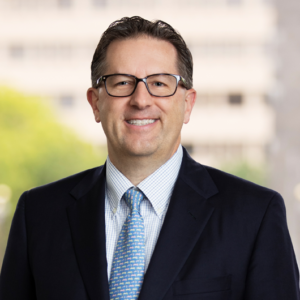Under the federal Stark Law, hospitals may provide non-monetary compensation to physicians up to an aggregate amount of $398 for calendar year 2017. The dollar limit for “medical staff incidental benefits” (e.g., meals, parking and other items or incidental services that are used on the hospital’s campus) is less than $33 per occurrence. Other requirements of the Stark Law’s exception for non-monetary compensation and medical staff incidental benefits also need to be met. Hospitals should take inventory of such non-monetary compensation and benefits to confirm they are meeting the law’s requirements.
Detailed Analysis
The Stark Law provides that if a hospital has a financial relationship with a physician, the physician may not refer to the hospital for the provision of “designated health services” (including inpatient and outpatient hospital services), and the hospital may not bill for such services unless an exception is met. A “financial relationship” under the Stark Law is construed very broadly, which means all remuneration from a hospital to a physician must be considered, including in-kind compensation.
Pursuant to the Stark Law regulations at 42 C.F.R. § 411.357, there are exceptions for non-monetary compensation and medical staff incidental benefits. Generally, the non-monetary compensation exception may be used to protect items or services provided to a physician such as entertainment, meals and other non-cash equivalent benefits. The exception for medical staff incidental benefits applies only to non-cash items and services provided while the physicians are on campus. These exceptions are outlined below. Hospitals should review and ensure they are meeting these exceptions.
Non-Monetary Compensation up to $398
Compensation from an entity in the form of items or services (not including cash or cash equivalents) that does not exceed an aggregate of $398 per year, if all of the following conditions are satisfied:
- The compensation is not determined in any manner that takes into account the volume or value of referrals or other business generated by the referring physician.
- The compensation may not be solicited by the physician or the physician’s practice (including employees and staff members).
- The compensation arrangement does not violate the Anti-Kickback Statute or any federal or state law or regulation governing billing or claims submission.
Where an entity has inadvertently provided non-monetary compensation to a physician in excess of the $398 limit, such compensation is deemed to be within the $398 limit if:
- The value of the excess non-monetary compensation is no more than 50 percent of the $398 limit; and
- The physician returns to the entity the excess non-monetary compensation (or an amount equal to the value of the excess non-monetary compensation) by the end of the calendar year in which the excess non-monetary compensation was received or within 180 consecutive calendar days following the date the excess non-monetary compensation was received by the physician, whichever is earlier.
This “return” option may be used by an entity only once every three years with respect to the same referring physician.
In addition to non-monetary compensation up to the $398 limit described in this provision, an entity that has a formal medical staff may provide one local medical staff appreciation event per year for the entire medical staff. Importantly, any gifts or gratuities provided in connection with the medical staff appreciation event are subject to the $398 limit.
Medical Staff Incidental Benefits
Compensation in the form of items or services (not including cash or cash equivalents) from a hospital to a member of its medical staff when the item or service is used on the hospital’s campus, if all of the following conditions are met:
- The compensation is offered to all members of the medical staff practicing in the same specialty (but not necessarily accepted by every member to whom it is offered) without regard to the volume or value of referrals or other business generated between the parties.
- Except with respect to identification of medical staff on a hospital website or in hospital advertising, the compensation is provided only during periods when the medical staff members are making rounds or are engaged in other services or activities that benefit the hospital or its patients.
- The compensation is provided by the hospital and used by the medical staff members only on the hospital’s campus. Compensation, including, but not limited to, internet access, pagers or two-way radios, used away from the campus only to access hospital medical records or information or to access patients or personnel who are on the hospital campus, as well as the identification of the medical staff on a hospital website or in hospital advertising, meets this ”on campus” requirement.
- The compensation is reasonably related to the provision of, or designed to facilitate directly or indirectly the delivery of, medical services at the hospital.
- The compensation is of low value (that is, less than $33) with respect to each occurrence of the benefit (e.g., each meal given to a physician while he or she is serving patients who are hospitalized must be of low value).
- The compensation is not determined in any manner that takes into account the volume or value of referrals or other business generated between the parties.
- The compensation arrangement does not violate the Anti-Kickback Statute or any federal or state law or regulation governing billing or claims submission.
- Other facilities and health care clinics (including, but not limited to, federally qualified health centers) that have bona fide medical staffs may provide compensation under this exception on the same terms and conditions applied to hospitals under this exception.
Practical Takeaway
Hospitals should update 2017 non-monetary compensation tracking tools to reflect the new non-monetary compensation limit of $398 and medical staff incidental benefits limit of $33 per occurrence. Further, hospitals should review non-monetary compensation provided in 2016 to ensure that such compensation did not exceed the 2016 limit of $392 and take any necessary corrective action to repay excess amounts within the earlier of 180 days of the overpayment or by December 31, 2016.
If you have any questions or would like any additional information about this topic, please contact:
- Gregg M. Wallander at (317) 977-1431 or gwally@wp.hallrender.com;
- Erin M. Drummy at (317) 977-1470 or edrummy@wp.hallrender.com;
- Alyssa C. James at (317) 429-3640 or ajames@wp.hallrender.com;
- Allison P. Emhardt at (317) 429-3649 or aemhardt@wp.hallrender.com; or
- Your regular Hall Render attorney.
Special thanks to Abigail Kaericher, law clerk, for her assistance with the preparation of this Health Law News article.
Please visit the Hall Render Blog at http://blogs.hallrender.com/ or click here to sign up to receive Hall Render alerts on topics related to health care law.



